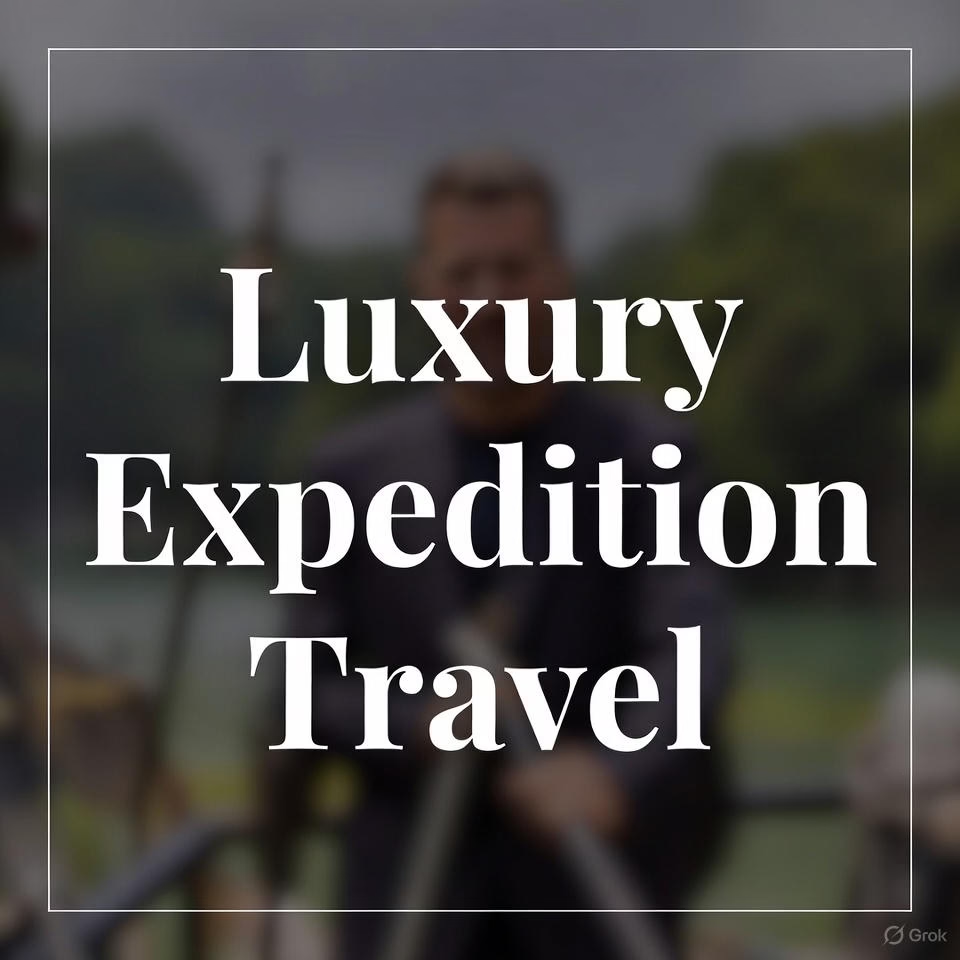Luxury used to mean privacy suites and marble bathrooms. Now, it’s the sound of silence at the end of the world.
After the pandemic, travellers started choosing wild places over fancy hotels and campfire dinners over restaurant meals. For many, these journeys work more like personal investments than regular vacations, giving them the chance to see parts of the world that remain completely wild.
Why Luxury Travellers Are Investing Differently
The pandemic rewired how people think about travel. Years of cancelled plans and closed borders made every trip feel precious.
According to Condé Nast Traveller’s latest trends report, luxury travellers nowadays are leaning toward off-the-grid adventures and smaller-scale destinations that feel untouched.
There’s science behind this shift. Research in the Journal of Personality and Social Psychology found that experiences deliver longer-lasting happiness than possessions. People anticipate them more, talk about them longer and remember them more fondly.
It’s true. A limited-edition watch can be replaced, but standing on an Antarctic peninsula, watching penguins cross a frozen bay? That stays with you.
The Rise of Remote Tourism
After 2020, the idea of “getting away” shifted from a long weekend trip to a journey somewhere that requires serious planning and a private jet or a cruise ship to reach.
This is where remote tourism has stepped in, and it’s redefining what luxury means.
The most exclusive itineraries today lead to places with the fewest footprints:
- Antarctica
- The Arctic
- Patagonia
- The Galápagos
These aren’t easy destinations to reach, and that’s the point! The difficulty creates value.
When you’re booking an Antarctica cruise, for instance, you’re not only booking a spa week. You’re buying access to places few humans will ever see, and doing it in a way that supports the planet instead of straining it.
Expedition ships now combine modern luxury with environmental responsibility: hybrid engines, reduced emissions and small guest numbers to limit impact.
Travel experts at National Geographic have noted that post-pandemic interest in expedition cruising has surged precisely because it balances exclusivity with purpose. Guests are learning from scientists, documenting wildlife and seeing firsthand what conservation looks like in action.
In this sense, remoteness has become the new luxury currency. These locations offer something mass production can’t copy: a completely different way of seeing the world.
Experience as Investment
For many high-end travellers, the idea of value has shifted from material to emotional. The same budget once spent on hotel upgrades or designer luggage is now going toward moments that feel rare, like standing under an Antarctic sky, watching ice shift and break with the sound of thunder.
Luxury operators have caught on. Modern expedition vessels and lodges are designed for immersion rather than opulence:
- Guided by naturalists
- Crewed by scientists
- Equipped for exploration but still deeply comfortable
Studies from Harvard Business Review highlight that experiential spending produces longer-term well-being and satisfaction compared to traditional consumption.
And there’s a sustainability angle, too. Expedition travel often funds environmental research and supports local economies, turning high-end travel into a cycle of reinvestment in ecosystems, cultures and preservation.
It’s luxury that gives back instead of taking more.
The Future of Luxury Expeditions
The next generation of expedition ships looks nothing like the floating resorts of the past. Hybrid propulsion systems, waste-reduction technology and AI-assisted navigation are making exploration cleaner and quieter.
Operators like Ponant and Hurtigruten have introduced carbon-neutral voyages and biofuel trials, setting new industry standards for sustainable travel.
Future itineraries focus on collaboration with scientists, indigenous communities and conservation groups. Guests join research dives or data-collection projects instead of crowded shore tours.
And exclusivity is changing shape too. It’s no longer about being first-class, but having stories that few others will ever live. “Slow luxury” is becoming the new standard. This means fewer destinations, longer stays and deeper engagement with places and people.
A Luxury That Lasts
In the end, the most memorable trips aren’t the ones filled with opulence but those that change how you see the world and yourself in it.
Expedition travel has become a kind of reset button. A way for people who could buy anything to choose something money can’t really touch: perspective, stillness and a sense of scale that humbles you in the best way.



